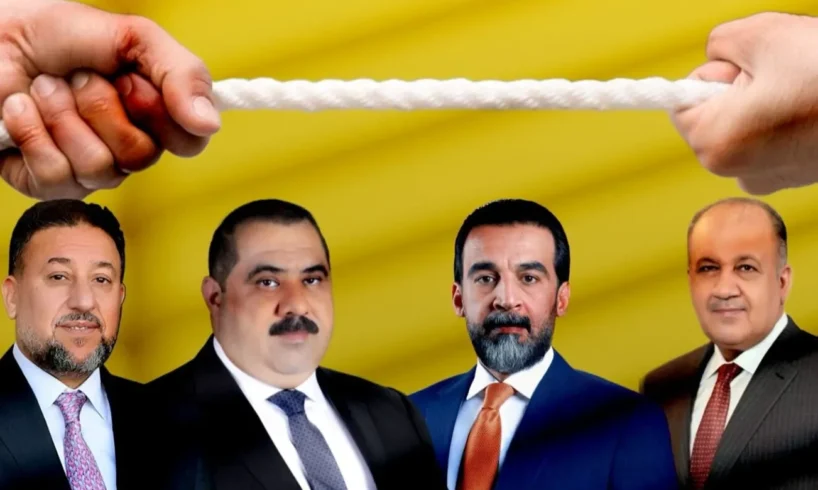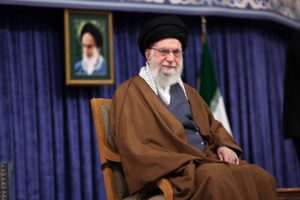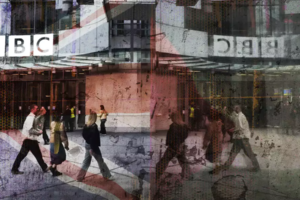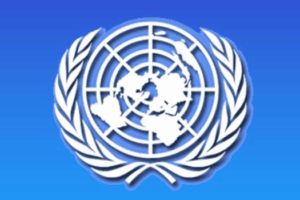
2025-11-23T13:53:58+00:00
font
Enable Reading Mode
A-
A
A+
Shafaq News
The final parliamentary election results have pushed Iraq’s
Sunni political forces into a decisive moment. After years of fragmentation,
the leading Sunni blocs now face pressure to present a unified model capable of
negotiating effectively in the upcoming government-formation process.
Competing initiatives, shifting alliances, and personal
rivalries are shaping a fluid landscape in which the future of Sunni
representation—and its share of top state positions—remains unsettled.
The Independent High Electoral Commission confirmed that
turnout surpassed 56% in the 2025 elections. According to the final tallies,
Shiite parties collectively control almost 187 seats, Sunni blocs 77, Kurdish
parties 56, and minority quota seats total 9.
This environment has revived discussions within Sunni
circles about forming a unified “Sunni Framework,” modeled after the Shiite
Coordination Framework, as a mechanism to centralize influence and prevent
further internal erosion.
The Sunni Framework
A senior Taqaddum (led by Mohammed Al-Halbousi) source told
Shafaq News that Sunni forces have initiated wide-ranging contacts aimed at
forming broad understandings. The source described a “clear orientation” toward
establishing a unified Sunni political bloc to manage the post-election phase
more effectively.
Most Sunni forces, he added, are now closer to
Taqaddum—including the Al-Siyada Alliance (Sovereignty)—despite earlier
disputes between its leader Khamis Al-Khanjar and Al-Halbousi.
However, the Al-Azm Alliance (Determination) led by Muthanna
Al-Samarrai, remains the most difficult partner due to accumulated political
disagreements with other Sunni actors, particularly with Taqaddum. Even so, the
source noted that “rebuilding alliances remains possible, provided that all
sides’ rights are safeguarded,” a condition currently under negotiation.
A Roadmap by Taqaddum?
Taqaddum official Ahmed al-Jubouri reinforced this
trajectory, saying Al-Halbousi continues to work on securing Sunni entitlements
and maintaining political representation. He indicated that Hasm and Al-Siyada
are the most likely partners moving forward, while an alliance with Al-Azm is
“not expected for now.”
Political analyst Yassin Aziz downplayed Al-Halbousi’s
chances of unifying the Sunni field. He attributed this to what he described as
Al-Halbousi’s tendency to centralize decision-making and sideline partners in
files related to the Sunni component.
Aziz told Shafaq News that “a unified Sunni position could
only emerge if Al-Halbousi acts as part of a collective political structure, as
happened within the Shiite Coordination Framework.” He considered such a shift
unlikely under the current conditions.
Instead, Aziz expects Al-Halbousi to pursue bilateral
negotiations with the Shiite Coordination Framework, potentially supported by
smaller Sunni actors seeking government influence.
He also said the presidency is expected to remain with the
Kurdish component under the political custom in place since 2005.
Weak Signs
This assessment comes amid growing reports suggesting
Al-Halbousi aims to rearrange top state positions so that the presidency would
go to the Sunnis while the speakership would move to the Kurds.
Efforts to restructure the distribution of senior state
positions have not gained broad Sunni approval. Both the Al-Siyada and Al-Azm
alliances have signaled reservations, with some of their earlier comments
interpreted as objections to what they view as Al-Halbousi’s attempt to pursue
the presidency for himself.
The overall indicators suggest that Sunni unification
remains unlikely in the short term. The political environment lacks the
conditions necessary for a coherent bloc.
Written and edited by Shafaq News staff.





